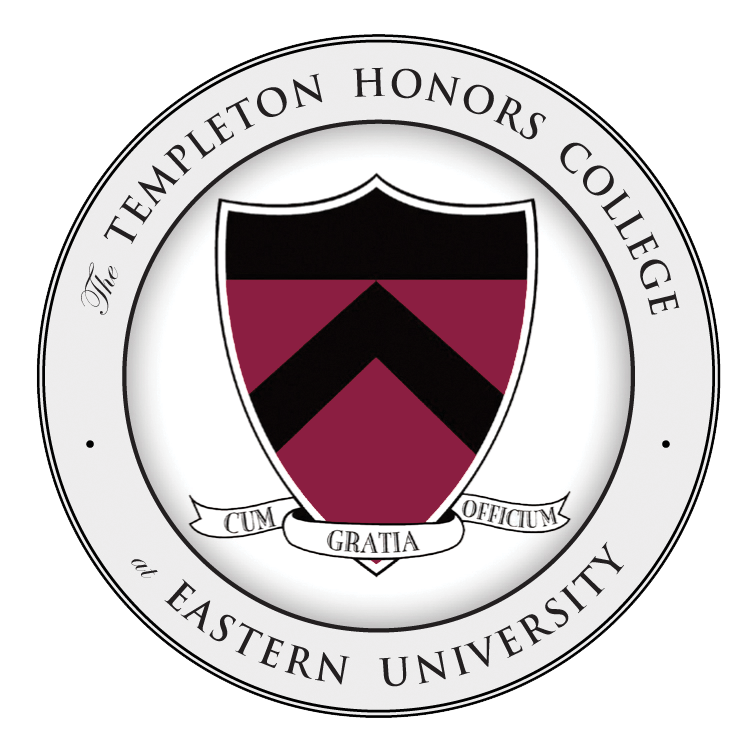

Dr. Putnam has taught graduate, post-graduate, and undergraduate courses in Greek and Hebrew, and the translation and interpretation of the Bible since 1984. He teaches the honors courses in biblical studies, electives in poetry, literature, the philosophy of Josef Pieper, Ecclesiastes, Classical and Koine Greek, and two required courses in the MA in Teaching that is offered through the Honors College.
He has published several reference works and textbooks on Classical (Biblical) Hebrew, and most recently co-authored a book on the discourse analysis of biblical poetry. His next book-length projects are on biblical theology based on biblical metaphors, and on the life of Joseph.
An ordained minister, Dr. Putnam and his wife, Emilie, have three daughters, all of whom live in southeast Pennsylvania, along with their grand- and great-grandchildren. He enjoys reading and discussing poems, history, literature, theology, language, and baking; listening to and making music; and swimming in and canoeing on lakes.
He occasionally preaches in local and regional churches, and speaks in schools, camps, and less formal settings, on such topics as reading and interpreting poetry, stories, the Bible, ancient history, the importance of reading, the nature and method of education, and technical aspects of interpreting and translating the Bible.
Dr. Putnam is a transplanted New England farmer who knows that Guernseys give the best milk and that hills are made of granite; he is also pretty sure that he has not yet seen a real winter in Pennsylvania.
- Ph.D., Annenberg Research Institute: Biblical Studies
- M.A., The Dropsie College: Biblical Studies
- S.T.M., Biblical Theological Seminary: Old Testament
- M.Div., Biblical Theological Seminary: Ministry
- B.S., Cairn University: Bible
HON 140 Honors Old Testament (3 credits)
Putnam ClassThe books that we call the “Old Testament” provide the foundation of our faith in at least three ways: (1) they describe carefully selected events from creation through the fifth century BC/BCE; (2) they contain the poems, prayers, and reflections of wise and creative men and women of God; and (3) they report the declarations of God through his servants the prophets. This course offers an overview of the biblical books of the Old Testament (from Genesis through Malachi), according to the Protestant canon. We will read and study closely select portions of these books for two purposes: (1) in order to gain an overview of the Old Testament (its canonical arrangement and general contents, as well as “key” places, dates, people, and events); and (2) in order to begin to learn how to interact with the various genres of the biblical text in a thoughtful manner (i.e., biblical stories, laws, poems, and prophecies). (GE indicators addressed: Biblically Informed)
HON 141 Honors New Testament (3 credits)
The books that we call the “New Testament” [NT] continue the story and themes found in the “Old” Testament [OT]. Although they are not more inspired or more important than the OT, they support our faith in at least three ways: (1) they describe portions of the ministry of our Lord Jesus Christ, from before the annunciation of his birth until his ascension into heaven and then his continuing ministry in and through the earliest Church; (2) they contain the writings in which early believers attempt to explain the significance of the life and ministry of Christ; and (3) they remind us of the continuing and culminating work of God. This course offers an overview of the biblical books of the New Testament (from Matthew through Revelation). We will read the entire NT in canonical sequence and discuss selected passages in order to (1) gain an overview of the NT (its canonical arrangement and general contents, as well as “key” places, dates, people, topics, and events); and (2) in order to continue learning how to interact thoughtfully with the various genres of the biblical text, especially biblical stories, epistles, and prophecies. (GE indicators addressed: Biblically Informed, Information Literacy)
HON 480 Honors Capstone (2 credits)
The Honors College core curriculum has been designed to nurture in students the cultivation of a rich, integrative, and coherent worldview—a worldview devoid of the common artificial divisions between academic pursuits, spiritual formation, cultural appreciation, and community life. The Honors Capstone is designed to revisit and, in some cases, recover the richness and coherence of an integrative humanistic, Christian worldview. Of particular importance for fourth-year students preparing for graduation, the course is posed as an opportunity for reflection and preparation for their vocational future. (GE indicator addressed: Formed in Christian Thought)
History of Modern Education
This second course discusses the history of education during the Modern era (1500-present), emphasizing the Reformation, Pietism, Enlightenment, the nineteenth-century development of the nation state and the research university, the rise of the social sciences, and the more recent developments of the twentieth century.
Books & Inserts
- The Books of Proverbs: A Classified Biography
- A New Grammar of Biblical Hebrew
- Proverbs. The Complete Biblical Library. Old Testament Study Bible
- Card-Guide to Biblical Hebrew
- Hebrew Bible Insert: A Student’s Guide to the Syntax of Biblical Hebrew
- A Cumulative Index to the Grammar and Syntax of Biblical Hebrew
- Directory and Profile, Collection Evaluation and Development Section of the American Theological Library Association
- Ten Key Kinds in Biblical Archaeology: Behistun to Ebla, the Digs that Made a Difference
Articles & Essays
- “Sexual Relations as Redeemed Intimacy: The Message of the Song of Solomon” – Modern Reformation
- “A Few Words” – First Annual Alpha-Chi-Epsilon Gala
- “Eirrean go braugh”
- “Notes on Dialogue”
- “The Battle O’er”
- “The New School of Theology”
Translations & Interpretations
- “Frozen Translations”
- “Irrealis in Biblical Narrative – What Didn’t Happen”
- “The Real Meaning of Genre – Some Thoughts & a Cautionary Tale”
- “Whose Story – NLT & the Hebrew Text of Genesis 44.1-13”
Biblical Theology
Biblical Hebrew
- “Reading & Understanding Biblical Hebrew (Part 1)”
- “Reading & Understanding Biblical Hebrew (Part 2)”
- “Reading & Understanding Biblical Hebrew (Part 3)”
- “Reading & Understanding Biblical Hebrew (Part 4)”
- “Reading & Understanding Biblical Hebrew (Part 5)”
- “Reading & Understanding Biblical Hebrew (Part 6)”
- “Reading & Understanding Biblical Hebrew (Part 7)”
- “Reading Notes on Jonah”
- “Reading Notes on Ruth”










